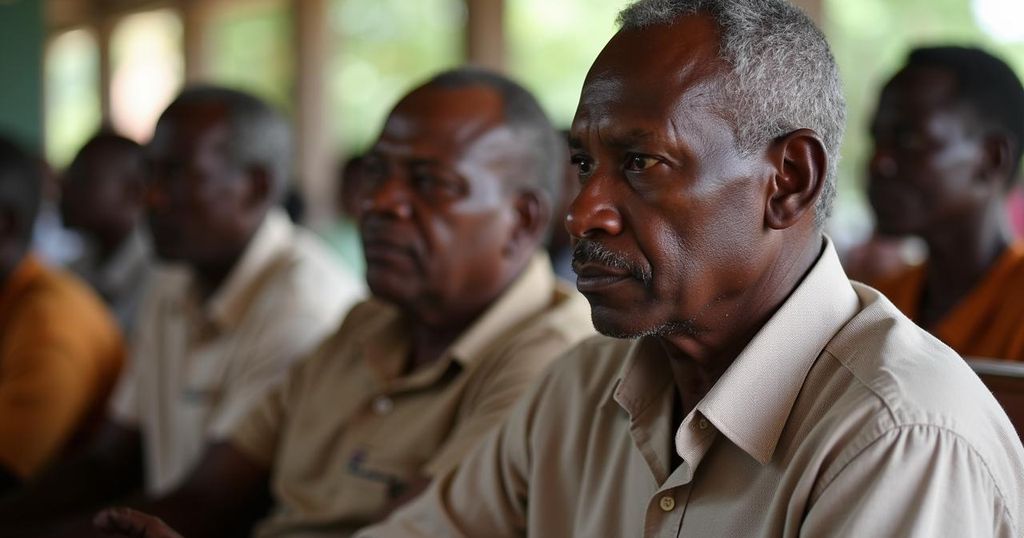Mozambique Awaits Election Results Amid Allegations of Fraud and Corruption
Mozambique’s recent elections have raised concerns over electoral integrity, with the ruling Frelimo party seeking to extend its nearly 50-year rule. Independent candidate Venancio Mondlane presents a serious challenge, especially among the youth. Allegations of fraud have been made against the electoral process, although initial reports from observers indicate a lack of major issues during voting.
Mozambique is currently awaiting the preliminary results of its presidential elections, held on October 9, 2024, amidst claims of electoral fraud and manipulations by the ruling Front for the Liberation of Mozambique (Frelimo). The vote count commenced immediately after the polls closed on Wednesday evening, with initial results from the country’s 11 provinces expected to emerge in the coming days. The final tally is required to be submitted to the Constitutional Council within 15 days for formal ratification. Frelimo has maintained power for nearly half a century since Mozambique gained independence from Portuguese colonial rule in 1975. Although the country experienced its first elections in 1994, this followed a 15-year civil conflict. Daniel Chapo, the party’s 47-year-old candidate, is anticipated to succeed President Filipe Nyusi, who has reached his term limits. Chapo unexpectedly secured his candidacy during an internal party election held in May. Independent candidate Venancio Mondlane poses a significant challenge to Chapo, especially among the youth who are frustrated by high unemployment and widespread government corruption. Mondlane and other candidates raised grievances regarding the voting process, pointing to instances where ballot boxes were reportedly unsealed prematurely, and accusations that their party delegates were not allowed to monitor the elections adequately. Despite Frelimo’s long history of electoral manipulation claims, the head of the European Union’s election observation delegation noted that election day was largely free of major incidents. However, concerns were voiced about restricted access for some election monitors, including by Mozambican monitoring group Sala da Paz. Mozambique is also facing a significant jihadi insurgency in Cabo Delgado province, which has contributed to displacements and hindered key economic investment projects. The current political landscape includes Chapo, Mondlane, Ossufo Momade of Renamo, and Lutero Simango of the Mozambique Democratic Movement, with voters choosing not only the president but also parliamentary representatives and provincial governors in this election.
The political situation in Mozambique is characterized by a long-standing dominance of the Frelimo party, which transitioned from a liberation movement to a ruling entity following independence. The historical backdrop of conflict and the subsequent establishment of a multi-party system in the 1990s shaped the current political dynamics. Since independence, Mozambique has faced numerous challenges, including a civil war, economic struggles, and more recently, socio-political unrest exacerbated by a youthful population that demands accountability and transparency from their leaders.
The recent electoral process in Mozambique reflects the continuing tension between the ruling Frelimo party and opposition candidates amid allegations of electoral malpractice. As the nation approaches the announcement of preliminary election results, the political stakes remain high for Mozambique, where the ruling party seeks to maintain its longstanding grip on power in the face of rising discontent among the populace, particularly among the youth who are increasingly vocal about their demands for change.
Original Source: apnews.com




Post Comment